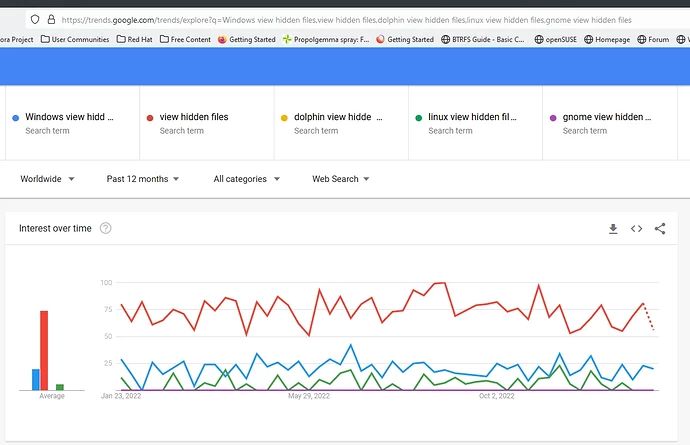I’m looking for some in/validation, other points of view on this one. Started as a r/linux discussion but the the larger topic that made me put this into words was closed off (as old news, I guess).
I’m using Linux on my personal PC for over 15y now and sometimes, when I ask for support, it’s hard to put into words what’s happening, what I would want to happen and only provide the relevant logs and screenshots. Overcrowding a post with irrelevant info, IMO, appears to correlate with a deterrence for people to contribute, at least in my experience.
Granted, these are problems for any IT professional, but since proprietary OSes and apps offer much less options to configure, it’s more likely someone has met my particular challenge and solved it already. It’s also likely many other people have had the same problem and thus boosted the SEO of the answer. As such, even if the problem description is slightly off point, it’s more likely to fall on the right solution.
Let me take a simple problem as an example: viewing hidden files. In Windows there is (Windows?) Explorer and few people use other file managers (i.e. many people don’t know Total Commander exists, never mind there are many others). Also, even if I normally use other file managers, I still have that Explore thingy on hand, if need be.
First to address: the implementation of hidden files feature is quite different from Windows to Linux. IMO, that is completely irrelevant for an end user looking for a hidden file. I am discussing here a particular technical goal and the ways to achieve it by the user.
Putting in Google Trends:
- Windows view hidden files
- view hidden files
- dolphin view hidden files
- linux view hidden files
- gnome view hidden files
Link to Google Trends
Using - Windows view hidden files and view hidden files yields relevant results to the Windows user. Dolphin and gnome are quite absent (when compared to the number of Windows relevant results). Let us suppose the user knows he or she is using Linux (some don’t, but let us skip that part).
I’ve taken the first result of the search linux view hidden files which is https://devconnected.com/how-to-show-hidden-files-on-linux/. That page shows how to view hidden files in the terminal and in Gnome Files (or Nautilus, I guess)?
Now, my father is using KDE and knows nothing about the terminal. Gnome and Gnome Files are not installed on his system. He does not know he is using KDE or Dolphin and will not input such terms in the search box. As such, none of the proposed search results offer any help. Users (at least in proprietary systems) are not trained to gather info about their context (check the about box dialog). What would be the point since most people know and use only one tool, which mostly does not change? If he does not know how to achieve a particular goal, he either gives up or calls me. That assumes I’m available and I understand his need, but what if I don’t?
This is not relevant in particular only to KDE. It’s hard to take one application (well Dolphin in this case) and say I want to do something with it. From I can’t find ZYX file to have you enabled viewing hidden files there is a whole story to be told. It’s hard to express this in a SEO relevant manner. What else besides the app name should I take from the context and put into the search box (app version)? What is absolutely irrelevant to the problem (that I have Intel or AMD CPU, that I have X amount of RAM)? Are you using SystemD or OpenRC? Where is the location of kernel log messages in Fedora, Ubuntu… version XY?
Sometimes the app or OS version is relevant because the location or the manner in which one achieves said objective changed. However, often the old answers have much better SEO than the new ones, as such users keep stumbling upon irrelevant info and say Linux is complicated as the info they find seems or is not relevant for them. And then they say they can’t deal with that and they’re out, back on proprietary OS no 1 or no 2.
TLDR: Extracting just the relevant info for a particular topic, expressing the problem in a SEO relevant manner, discarding old results (Ubuntu 5.04 vs Ubuntu 22.04) and indexing knowledge bases in a way that such queries are possible are tough nuts to crack.
